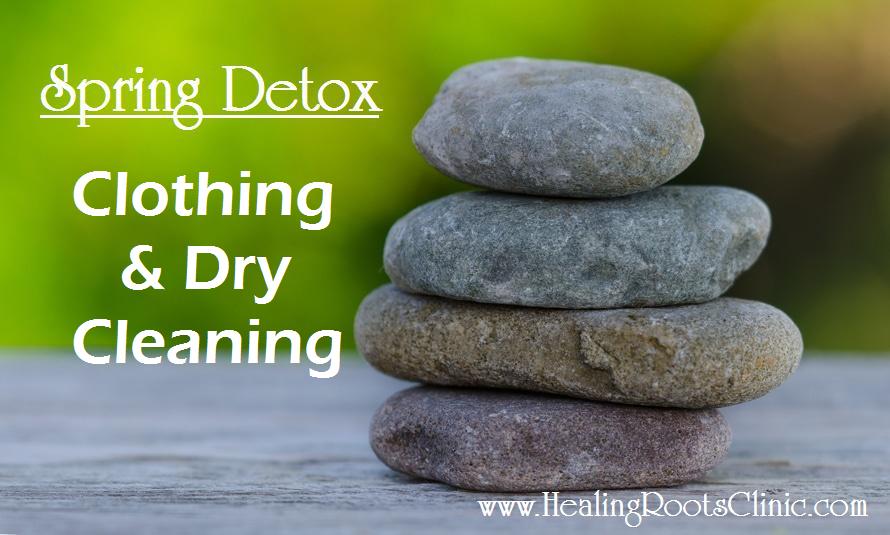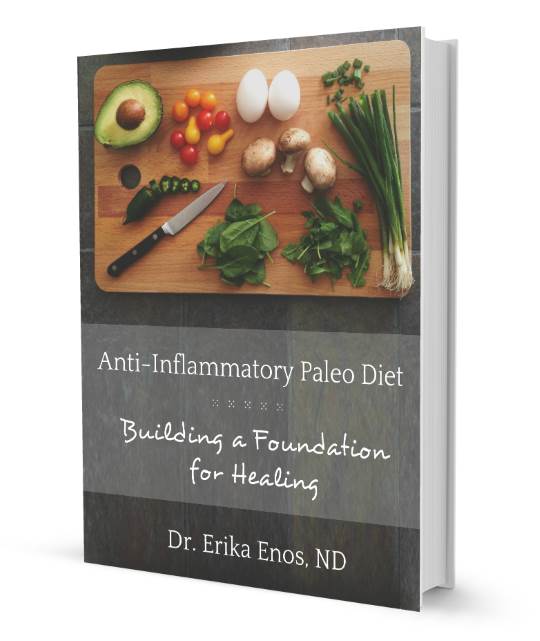 Take a quick stock of what you’ve worn over the last few days. Anything new that hasn’t been washed yet? A dry cleaned dress? What detergent did you use? Did you put on a shirt that felt extra soft, like dryer-sheet soft? Were most materials synthetic or natural? The answer to all of these questions will have an impact on your health for more than one reason.
Take a quick stock of what you’ve worn over the last few days. Anything new that hasn’t been washed yet? A dry cleaned dress? What detergent did you use? Did you put on a shirt that felt extra soft, like dryer-sheet soft? Were most materials synthetic or natural? The answer to all of these questions will have an impact on your health for more than one reason.
What goes on your skin, gets in your body…
This isn’t true just of the lotions and cosmetics that you rub directly on your skin. The chemicals on and in your clothing also have prolonged contact with your skin and can be absorbed. A study was performed at Oregon State University using silicone wristbands to detect toxin exposure and probable absorption by participants. The porous surface of the bands mimics a cell and absorbs chemicals in the environment. The results showed that participants were absorbing chemicals common in laundry detergents, including phthalates added for “fresh scents” (1).
Your skin’s microbiome is sensitive…
 Microbiome refers to the complex community of microorganisms in an environment. We have heard a plethora of information about the gut microbiome and we are now starting to learn more about the skin microbiome. Just like in our gut, the bacteria on your skin needs to be healthy to keep you healthy. Contact with chemicals can disrupt the bacteria on your skin and make the microbiome less healthy.
Microbiome refers to the complex community of microorganisms in an environment. We have heard a plethora of information about the gut microbiome and we are now starting to learn more about the skin microbiome. Just like in our gut, the bacteria on your skin needs to be healthy to keep you healthy. Contact with chemicals can disrupt the bacteria on your skin and make the microbiome less healthy.
How clothing affects the planet’s health too…
The origin and manufacturing of your clothing as well as how you care for it has a big environmental impact. Our water and air supplies suffer big time from the pesticides used to grow cotton, and the chemicals used to dye fabric, to produce synthetic fibers, to launder clothes, and in dry cleaning.

7 Tips to Detox Your Closet
-
-
Wash all new clothing before wearing it.
-
Formaldehyde is used on clothing for a number of reasons, including making them look well-pressed for sale in the stores. Despite formaldehyde being quite toxic and a known human carcinogen (2), the US government does not regulate its levels in clothing even though other countries do (3). Wash all new clothing before you wear it to remove as much formaldehyde as possible.
-
-
Avoid clothing made from fabrics that have chemicals embedded in them.
-
These include things that are labeled wrinkle-free, stain-resistant, permanent-press, flame-retardant, and moth-repellent. It is the use of harsh chemicals that accomplish these promises.
-
-
Choose a non-toxic laundry detergent.
-
Just because you pick up a laundry detergent off the shelf of your local health food store or Whole Foods, doesn’t mean it is chemical-free. Check out the Environmental Working Group’s (EWG) list of the best in health and eco-friendly laundry detergents and choose those that score an A.
-
-
Skip the dryer sheets and fabric softeners.
-
These can contain chloroform (a possible and suspected human carcinogen) and benzyl acetate (likely toxic to the kidneys, liver, and lungs). It’s not so nice to coat your clothing in these toxins. The chemicals released into the air as they heat up in the dryer aren’t friendly either. I find wool dryer balls to work incredibly well. Also, Adria Vasi (author of Ecoholic: Your Guide to the Most Environmentally Friendly Information, Products, and Services) suggests these homemade fabric softeners:
1 – Add baking soda to your water filled wash machine and then one cup of vinegar during the rinse cycle.
2 – Add some vinegar to a damp cloth and toss this into the dryer with your clothes.
3 – Use essential oils on a cloth added to your dryer if don’t want to give up scented laundry.
-
-
Choose natural fibers more often.
-
Natural fibers include cotton, cashmere, hemp, linen, wool, and silk. Wearing polyester, acetate, nylon, acrylic, and rayon should be minimized… I know it is pretty unrealistic to avoid these completely! I have them in my closet too and it can sometimes be hard to find stylish clothing in natural fibers, but do make a concerted effort where you can. It will make a difference. Greta Egan has tips on how to do this in her interview with Debra Dadd. In addition to avoiding the chemicals used in producing synthetic fabrics, when you choose clothing made of natural fibers, you are likely promoting better skin microbiota. Synthetic fabric appears to harbor bacteria not native to the skin (4).
-
-
What about dry cleaning?
-
Truthfully, many of the fabrics listed as “dry clean only” can be washed by hand or even on gentle wash. I try to minimize the amount of times I need to wash clothes that are labeled as dry clean only when I wash them on gentle instead. One way trick I have for doing this is using My Dry Underarm Pads. If you have suits or other items that just can’t be hand washed, choose a green dry cleaner. But beware! Many of these establishments are green only in name. Adria Vassel recommends “wet cleaning” and carbon dioxide-based dry cleaners. You can also learn about more options by listening to this interview from Debra’s List “Can Dry Cleaning Be Less Toxic?”
-
-
Skip the bleach.
-
Powdered oxygen bleaches made from hydrogen peroxide or sodium percarbonate are a great alternative. If you live in Colorado or another state with intense sunshine, sunlight is an awesome way to brighten up white clothing (and fade colors… so keep that in mine). Try hanging clothes out on a line this summer.

(Amazon Affiliate links are located in this post.)
